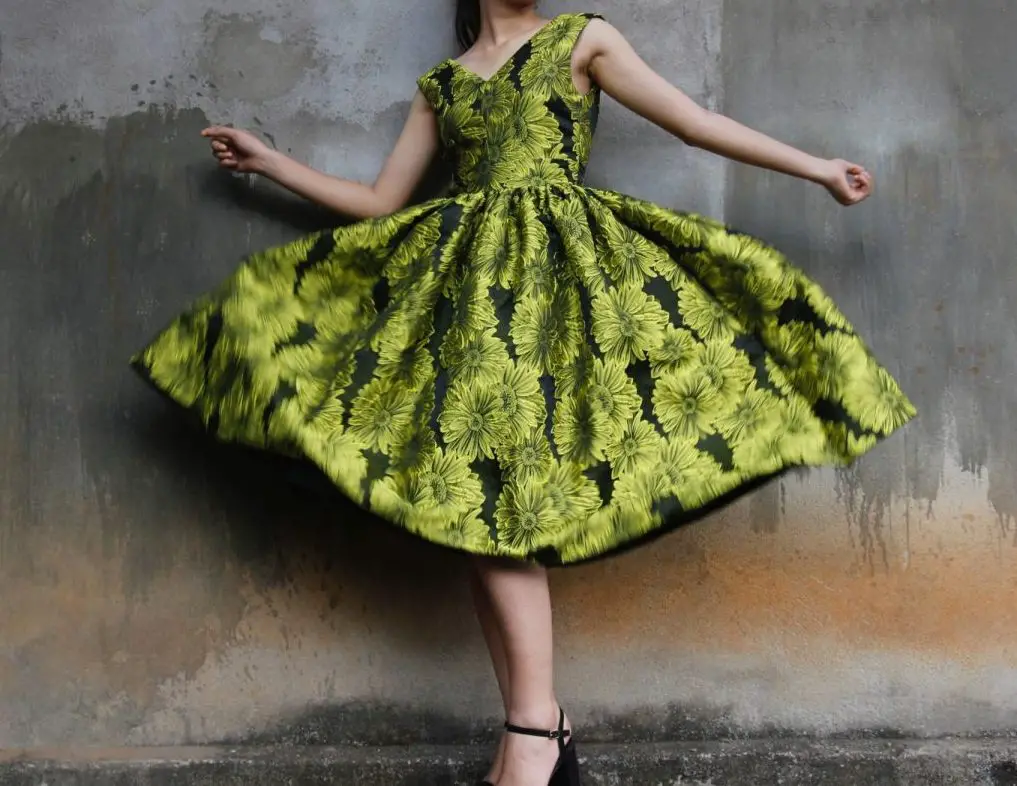“Take, make and waste” is the philosophy statement of most big fashion brands nowadays. Fast fashion has been dominating the market by making products cheaper and easier to dispose of. But, how can big brands cheaply mass-produce their clothing in a global market, while also making them align with the constantly changing trends? Right, by using cheap and unethical fast fashion practices.
What is fast fashion?
The “more-is-more” philosophy of the fashion industry makes mass production its main goal, and textile manufacturing has been globalized to make it extremely cheap. Most of the factories are in low or middle-income countries where the workers are not only being exposed to harsh and often deadly chemicals every day, but also being paid a barely-livable wage. Outcomes of working in a textile factory may include lung disease, birth defects and even cancer.
Another cost of fast fashion is our environment. According to one of the studies, nearly 3.8 billion pounds of clothing in America is sent to landfills annually. That’s about 80 pounds per person. Some of the synthetic fibers found in clothing, such as nylon and polyester, can take up to a thousand years to biodegrade. More than that, textile dyeing results in pollution of local water systems with heavy metals and toxins that affect the health of anyone living nearby.
What is sustainable fashion?
Sustainable fashion attempts to cut down the pollution and waste that the fashion industry dumps into the environment. Under the umbrella term of sustainability, there are both environmental and socio-economic dimensions. The environmental factors include limiting the amount of water and pesticide use, recycling used materials and selecting renewable energy sources.
The socio-economic element has to do with the people making the clothing and whether or not they have good working conditions, health benefits and fair wages. Both of these should be taken into account by any brand who chooses to label themselves as “sustainable.”
The fashion industry accounts for 10 percent of the world’s carbon footprint. While climate change is still wreaking havoc on the environment, these five brands are helping to reverse the wrongdoings of fast fashion with their sustainable and ethical practices. They also prove that eco-friendly clothing is anything but boring, and that sustainable shopping doesn’t have to cost you an arm and a leg.
1. AMUR (A Mindful Use of Resources)
This New York-based collective was born from the thought that design can strike a balance between beauty and good intentions. The clothing collection has an equal respect for the female form as they do for the environment, and that’s why AMUR’s main focus is on the sourcing of materials and making sure that natural and organic textiles are the foundation for every one of their beautiful pieces. Their collections consist of feminine and flowy dresses, tops, jumpsuits and more. The designs vary in textures, prints and colors, creating a signature style that celebrates both femininity and nature.
2. Tamga Designs
The founders of this colorful and bohemian brand were inspired to bring environmental awareness to their new fashion line after visiting a collapsed factory in Bangladesh. After witnessing the tragic consequences, the role of consumers in the brands that commit these injustices to workers and to the planet became painfully clear to the future founders, and they decided to make something totally unique.
Tamga creates vibrant and responsibly sourced clothing that makes you feel like you are wearing a piece of paradise. Not only their hand-drawn prints are attractive, but what should matter the most is that all of the clothes are produced in dignified working conditions. The company also partnered with various charities to stop deforestation in Indonesia at the hands of the fashion industry.
3. Reformation
While this sustainable clothing brand surfaced recently in 2014, it has already attracted the attention of some big names. Rihanna, Taylor Swift and Karlie Kloss are just a few of the celebrities that are paying customers of Reformation. Reformation’s style is effortless and girly with a variety of flattering tops, dresses and jeans for women.
When founder Yael Aflalo started this e-commerce shop, her goal was to ethically manufacture the items and reduce the fashion industry’s carbon footprint. The brand’s actions speak for themselves. It declared itself to be carbon-neutral in 2015, meaning that it had not put out any net emissions since then. They also built their own sustainable factories in both Los Angeles and New York to ensure their workers’ safety and well-being.
4. Kitx
Kit Willow, the founder of this Australian luxury brand, says that Kitx is “born from a spirit of kindness, integrity and transparency.” All of the materials used in her clothing are organic and ethically sourced, meaning that they do not waste any of the environment’s precious resources. For example, Kit uses Corozo nuts in her buttons because of their uniqueness and their ability to biodegrade. She also uses a material woven from used fishing nets called Econyl to craft sexy bodysuits for women. Overall, Kitx takes high fashion to the next level by combining organic materials with effortless, runway-ready style.
5. Fame And Partners
This Australian modern-chic brand looks to eliminate the issue of overproduction by crafting every piece to order. By avoiding bulk manufacturing, Fame and Partners’ custom production method not only cuts down on harmful waste and excess stock, but also guarantees a perfect fit every time. The label’s founder, Nyree Corby, hopes to “empower the modern woman” with each personalized piece. The collections this brand has to offer are the definition of elegance. From luxurious satin gowns to casual spring co-ords, Fame and Partners is great for the modern, environmentally-conscious woman.
















